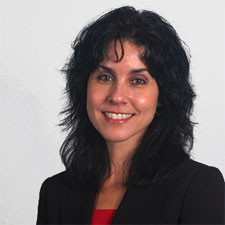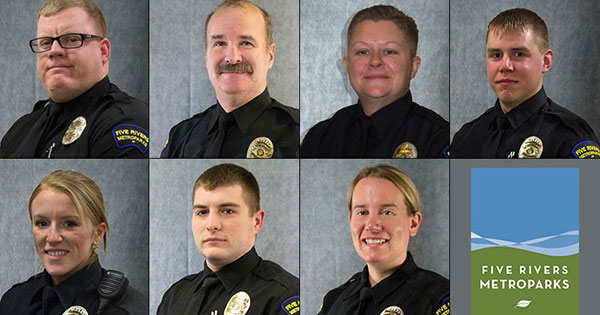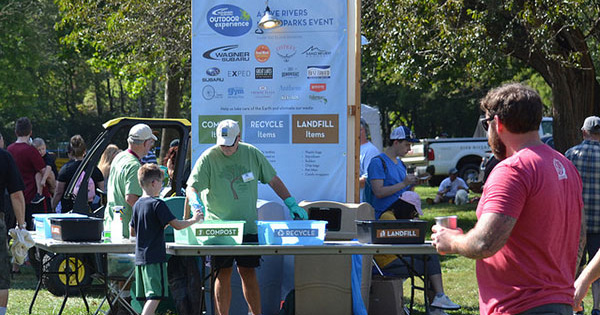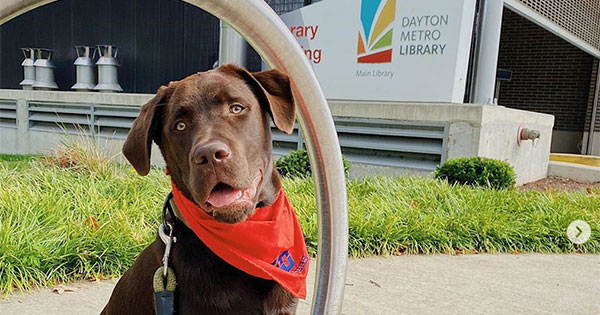Interview With a Career Advisor

Last month, we heard from Sylvie Stewart, a career advisor with the University of Dayton, as she shared a thought-provoking open letter to businesses. Sylvie's personal experience with a long period of job loss and job searching made her a strong, successful advisor, and this month she is back to answer some questions I posed to her.
Interview With a Career Advisor
Last month, we heard from Sylvie Stewart, a career advisor with the University of Dayton, as she shared a thought-provoking open letter to businesses. Sylvie's personal experience with a long period of job loss and job searching made her a strong, successful advisor, and this month she is back to answer some questions I posed to her…
- Why did you decide to become a career advisor?
I was reading the Dayton Daily News one morning and saw that Sinclair Community College was hosting a free, open to the public, event for unemployed job seekers. This was in 2003 when NCR had laid-off a large number of employees and other unemployed people in the community were also suffering from a bad economy. I felt an instant pull from my heart and mind (as a prior HR Manager) that I wanted to get involved and help the unemployed. I called and started volunteering in the program which helped confirm my interest and passion to help others in this way.
- What are some of the day-to-day services you offer?
Our Career Services Department provides career-related resources, programs, services and opportunities that build confidence and job search skills. We serve as a connecting point between students, faculty, alumni and employers in an increasingly diverse and globally influenced job market. We are a leader in career planning and preparation, balancing the latest technology with personal guidance in the Marianist tradition.
- Is there anything about your own career path you share with job seekers?
Landing the job that I wanted took several years and was an exercise in faith, perseverance, and hope but most importantly, networking (meeting people who worked where I wanted to work) and volunteering in the field made all the difference when the opportunity presented itself.
- What are the top three resources you would recommend to someone who is new to the job-seeking process?
- http://www.careerinfonet.org/employerlocator/ Use the employer locator website and know the top three industries you want to work for, research the companies within the industry, and then try to meet people at the specific companies to learn career advice that will help you achieve your goals (conduct informational interviews & volunteer).
- http://www.onetonline.org/ Use the top right box on the home page, "Occupation Quick Search" to help you learn the skills (for a specific job) and language needed on your resume and for interviewing. After you run a report for a specific job title, scroll down to the end of the report to learn salary data for the state that you are targeting. This is also a great resource to learn what transferable skills you have, key in the job title of your past position(s) and identify the transferable skills, knowledge, work attributes and values that you could bring to the next opportunity.
- http://www.indeed.com/ Use the "what" field to search for jobs by skill set versus exact title. For example, many employers have similar jobs but the job titles are unique to the company and/or industry, run a search for a key skill area or qualification that you have (such as six sigma, or analyst, or specific software that you know) and you will have many more jobs to consider, make sure to scroll down to the bottom of your search and type in your email and save the alert so the website will email new jobs to your email address and you are not wasting your time looking.
- What are some common mistakes today's job seeker makes?
Spending the majority of their time at home and/or looking on the internet. It is critical to be involved in the community where there is an opportunity to serve, which will help keep the emotional depression of not serving to a minimum. Also, it is very important to visit a credit union or bank to see if there are things you can do financially that will free up cash flow for saving and/or reduce monthly debt. For example, credit unions offer extension agreements on loans to spread a current loan balance out over several months, which reduce the monthly payment. Contact creditors and establishing payment plans and/or possible deferments can also help with managing finances on limited bring home pay. You may even have to consider downsizing your home and life. For my family, we downsized our debt-life by selling our larger home for a smaller home, our newer car for an older car, stopped cable and found free events to take our children to.
- Many job seekers are concerned about employment gaps. What advice would you give them?
Volunteering in the industry and or community are great avenues to address the gap - list them under the header of "Community Leadership" prior to listing the "Professional Experience". Also, if the unemployment was due to a reduction in force - state this under the end date of the job on the resume so recruiters do not assume a negative performance issue. Look for free educational opportunities at the public library, local job center, and/or community college to add to your resume under the "Education" section, demonstrating that you are a life-long learner. Make time to read books/articles on your top industries, and biographies of successful people (where you will learn how suffering is a very normal experience felt before reaching success).
- How do you recommend job seekers navigate around the issue of age discrimination?
Resumes are a marketing tool and for that reason do not have to have an applicant's total employment history with dates. Try to limit the job details to what is needed for the target job. Remember though that job applications are legal documents and should be completed with accurate detailed information. If given the opportunity to interview where it will be obvious that an applicant is older, I would address the "hidden" issue up front for example when asked the typical opener of, "Tell me about yourself?" state something like, "My prior career was in (blank) and now that I have the luxury to spend the next 12-15 years doing something new I am excited to be here and learn more about the opportunities with your company." (It doesn't matter if you only plan to work 3-5 years - you never know the future.)
Many times job ads will list skill areas that you may not have. Visit with a local reference librarian at your community library and show them the list of skills/ training areas needed. They will be able to identify free independent training resources such as tutorials that can help you prep for an interview and feel more confident. For example, let's say they call for a phone screen and ask you about your computer skills. You can explain that you believe in self-education and have pursued training resources to ensure you can add immediate value for the position.
- What is the most beneficial way for a job seeker to spend time online?
- Using the employer locator to research small and mid-size companies that hire the old fashioned way (they have no job boards and/or the job board may be empty). Consider the following options: walk in to complete an application and/or submit a resume and a short cover letter explaining that you had researched their company but did not see an online way to apply and/or the job board did not list any openings but you wanted to introduce yourself for future opportunities. Wait 7-10 days, and if you have received no response, call to verify the Human Resources Department (or Hiring Manager) received your information and to learn how you can stay abreast of future job openings with their company. Consider asking for an informational interview on the follow up call to learn more career advice for their industry, and possibly offer to volunteer as a "thank you" after the informational interview.
- Set-up job alerts with the www.indeed.com online job board so new opportunities are emailed to you.
- Stalk the websites of target companies that have online job boards, weekly for new opportunities to apply to.
- Read the "Dayton Business Journal" or specific Business Journal for your target city. Employers will be highlighted that are coming to the area and/or experiencing hiring growth. Don't wait for them to advertise the openings, target them by mail directly with a short cover letter and resume.
- Use social media sites such as www.linkedin.com to identify people that you would like to connect to and ask for specific industry career advice.
- Is there a success story you like to share with job seekers?
When I finally knew what I wanted to "be" (help people get jobs) at age 39, it took me four years after the informational interview and volunteering to reach my goal. When I was experiencing frustration and disappointment during the four-year wait, I would tell myself that one day this process would make sense. I can now say that I am grateful that I did not easily reach my career goal because I know that I would not be as effective of helping job seekers realize that this is a game of leadership, change management, marketing, follow-up/ perseverance, faith, and hope that the present unemployed or underemployed period will end for life is guaranteed to change.
- What would you want job seekers to know about the Career Services department at their alma mater?
They should connect with any college resources they used (or have their spouse connect for their specific college resources and share). Ask the colleges if they offer alumni access to Career Services resources, job boards and/or alumni contacts. Even if the college is in another state it is excellent to connect, you never know who knows who. If you attended a private high school, it is also wise to connect with the school to see if they have avenues to connect with alumni.
Thank you so much, Sylvie, for providing so many helpful hints and specific resources the job seeker can utilize. We appreciate your time and personal story.
Now…go apply what you have learned today!
Next month's feature: Five common pitfalls job seekers face


















